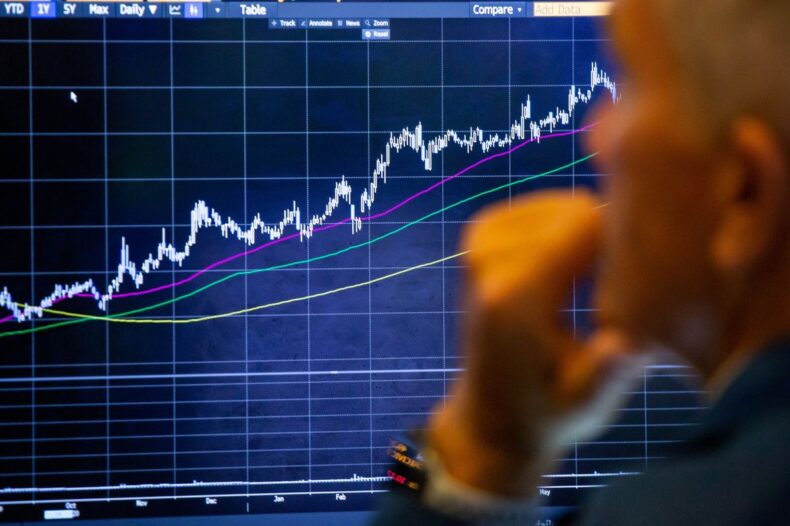Hawkish signals and the Fed’s hike cause a selloff in global equities. China’s stance toward Taiwan and Russia may enrage the United States.
Chinese stocks are suffering as a result of the most severe market risks in the world, such as the Federal Reserve’s tightening of monetary policy and Beijing’s pursuit of Covid Zero, driving one important indicator to its lowest level in more than a decade as analysts struggle to forecast a bottom.
The benchmark Hang Seng Index for Hong Kong dropped 1.6 percent to close at its lowest point since December 2011. After earlier reaching levels last seen in 2008, the Hang Seng China Enterprises Index, a measure of Chinese stocks traded in the city, fell 1.1 percent. This year, both equity indices have been among the worst performers globally.
Although the shock on Thursday was a component of a global sell-off sparked by the Fed’s hawkish interest-rate hike, China’s stocks face particular difficulties that lessen the likelihood of an impending turnaround despite months of policy stimulus.
Despite an unprecedented crisis in the country’s real estate market, Beijing is still adamant about eliminating Covid-19. Meanwhile, the US and China are at odds over complex issues like trade and ties with Taiwan and Russia, raising the possibility of Western sanctions.
“All of this bad news from both China and the United States is hurting Hong Kong stocks,” Paul Pong, managing director of Pegasus Fund Managers Ltd. in Hong Kong, confirmed the report. “I’ve increased the portfolio’s cash balance. Before we see any significant recovery in the second half, I believe there will be more downside for Hang Seng.
The decline from last year has been extended by the Hang Seng Index, which has fallen more than 22% so far this year. The benchmark has significantly underperformed the MSCI World Index since a market crash at the start of the pandemic in March 2020, falling by a staggering 69 percentage points. About two-thirds of the stocks listed on the Hong Kong gauge are owned by Mainland companies.

The losses are especially upsetting as Beijing hosts its twice-decade Communist Party Congress this year, an occasion that historically has boosted the stock market.
Not that Beijing hasn’t taken action. In the midst of a global wave of aggressive tightening, the People’s Bank of China stands out because it has cut a key policy rate twice this year. To stop a decline in the real estate market, authorities have also increased fiscal stimulus and eased restrictions on home purchases in some cities.
However, even though the valuation of the Hang Seng benchmark has plummeted to its lowest level since Bloomberg data dating back to 1993, some investors do not consider it to be sufficiently cheap when pricing in escalating risks.
“It’s not time to buy yet as Hong Kong’s stock gauges fall to new lows, with aggressive US interest-rate hikes adding to pessimism around Covid Zero and the ongoing property crisis in China,” spoke Manish Bhargava, fund manager at Singapore’s Straits Investment Holdings.
It is not surprising that economists have been lowering their predictions for the country’s economic strength. Goldman Sachs Group Inc. reduced its forecast for China’s growth in 2024 from 5.3 to 4.5 percent, assuming Beijing will uphold its strict Covid Zero policies for at least the first quarter of 2019.
Furthermore, the growing hostility between Beijing and Washington is a significant overhang that limits the possibility of any significant recovery.
China has been speaking out more against Taiwan, claiming that it has the time to one day bring the island nation under control. Leaders in the West are keeping a closer eye on Beijing’s connections to Moscow for any indications of support.
Even though it is unlikely that Covid Zero will be abandoned, some investors are still hoping for more policy stimulus from the upcoming leadership congress.
Although the CSI 300 Index fell 0.9 percent on Thursday, mainland stocks have proven to be more resilient than those in Hong Kong.
The head of Hong Kong research at Julius Bär Group Ltd., Richard Tang, stated that any acceleration of policy easing “may offset part of the market pressure.” During the 20th Congress of the Chinese Communist Party in October, investors will be looking out for any indications of a shift in Chinese policy.













